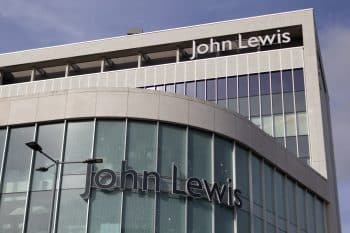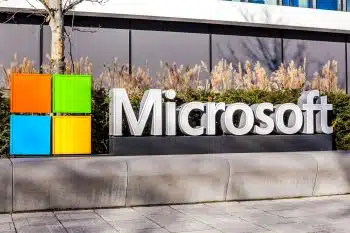Home » Business News » What News From Around The World
What News From Around The World
https://www.whatjobs.com/news/business-news/what-news-from-around-the-world

By Kris Paterson in Business News, posted August 8, 2021

Washington DC
Inflation arrives: "US consumer prices rose sharply in March as the economic recovery gained momentum, marking the start of an expected months-long pick-up in inflation pressures," says
Gwynn Guilford in The Wall Street Journal. Year-on-year inflation jumped from 1.7% in February to 2.6% in March, the highest figure since August 2018. The key culprit was a 9.1% jump in petrol prices; the sector has yet to recover fully from production problems caused by severe winter storms.
Core inflation, which strips out volatile food and energy prices, rose from 0.1% to 0.3% in March month-on-month, and by an annual 1.6%, up from 1.3%. "For all the focus on supply disruptions pushing goods prices higher, the strongest upward pressure on prices is coming from the services sector," says Michael Pearce of Capital Economics. Hotel prices, for instance, rose by 4.47% month-on-month. The fact that prices had collapsed this time a year ago will temporarily drive core inflation above 2.5% by May, but "there are also signs of a more sustained turnaround in, for example, rising property rents. Expect core
inflation to be average around 2.5% next year and in 2023.
London
Glasses raised to the end of lockdown: Pub gardens, hairdressers, gyms, zoos and non-essential shops reopened for business this week in England, with shoppers flocking inflation to the high street, says BBC News. In Wales, non-essential shops reopened, and travel restrictions to and from the petrol rest of the UK were eased. Since the start of the year, the average number of new daily cases of Covid-19 in the UK has "fallen substantially, but the rate of decline has slowed in recent weeks".
The seven-day average of new cases stood at 2,757 on Saturday, down from almost 60,000 at the peak in January. Meanwhile, 32 million people have had at least one dose of a vaccine. In February, lockdown rules continued to hamper growth, says Samuel Tombs of Pantheon Macroeconomics. GDP rose by 0.4% month-on-month, yet output was still 8.2% below its pre-pandemic level. But consumers and businesses are gaining confidence. A 5% quarterly jump in GDP between April and June is still on the cards.
Mogadishu
President clings on: Somalia's lower house of parliament has voted to allow Somalian president Mohamed Mursal Sheikh to remain in power for another two years to enable the country to prepare for elections, says Al Jazeera. His term ended this week without a political agreement on proceeding with new elections to replace him. The government now confronts a political crisis... a deadly rebellion, a locust invasion, and serious food shortages".
The international community reacted negatively to the news, with the African Union, European Union, and the United Nations saying they would not support it just days before the legislation passed. The UJS said it was "deeply disappointed" by the parliament's decision. Somalia was "plunged into chaos" in 1991 after the overthrow of President Siad Barre's military government by the armed group al-Shabab. The country's economy has been hit by locust plagues and flooding on top of the pandemic and shrank by around 2.5% in 2020. GDP is set to grow by 2.9% in 2021 and 3.2% in 2022, but political unrest could delay its recovery.
Nairobi
Kenyans reject aid: A $2.3bn loan package for Kenya from the International Monetary Fund. (IMF) has provoked anger "rather than relief", says Jane Flanagan in The Times. Since it was announced, just after a survey revealing that 80% of Kenyans felt angry because of the debt burden, the IMF's social-media sites and Twitter has been buzzing with complaints with the hashtag #StopGivingKenyaLoans, says the BBC. An online petition arguing that previous loans have not been "prudently utilized" and demanding the IMF withdraw the offer attracted more than 250,000 signatures within days.
When the current government took over in 2013, public debt stood at $16bn. It has since risen to around $70bn. There are also concerns about corruption: President Kenyatta recently admitted that $18m is "lost" from state coffers daily. Finance minister Ukur Yatani said the loan was needed to support small businesses and "forestall a greater humanitarian crisis". GDP has been recovering in Kenya after a contraction of 0.1% in 2020, says Bloomberg's Eric Ombok; there have so far been just 2,186 Covid-19 fatalities.
Berlin
Europe to bounce back: Investors' confidence in Germany's economic recovery deteriorated after the government "signalled a further tightening of pandemic restrictions", says Carolynn Look on Bloomberg. The economic sentiment indicator for Germany from the ZEW institute fell to 70.7 in April from 76.6 the previous month, the first drop since last November (zero indicates a neutral outlook on a scale from -100 to 100). The gauge for the eurozone fell to 66.3 from 74. Meanwhile, data released on Wednesday showed industrial production in the single-currency area fell by 1% on February month-on-month, reversing January's 0.8% gain. Nevertheless, it's not all gloom, note Martin Arnold and Valentina Romei in the Financial Times.
High-frequency "Google mobility data show visits to retail and entertainment venues have increased in the eurozone since January, pointing to a pick-up in activity last month, despite fresh lockdowns". Official data on Monday also saw retail sales rise by 3% in February month-on-month from January's 5.2% contraction. "With involuntary savings built up substantially over the course of last year, there is significant potential for a rebound," says Bert Colijn of Dutch bank ING. "Things are looking good for a consumption recovery."
Tokyo
Toshiba's CEO quits as buyout looms: Toshiba's CEO Nobuaki Kurumatan is stepping down as board members prepare to discuss takeover proposals that "would put the conglomerate at the centre of Japan's biggest-ever leveraged buyout deal", says the Financial Times. It emerged this week that Toshiba was examining a $20bn buyout proposal from European private-equity group CVC. But a bidding war seems likely as rival private-equity group, America's KKR, announced it plans to offer a buyout plan above CVC's offer.
Kurumatani formerly served as head of CVC's Japan operations, and the board member had called for a meeting to debate his resignation owing to the potential conflict of interest. But Kurumatani agreed to step down "before being forced to do so". Board members and shareholders had also been unhappy with Kurumatani's handling of the firm's activist investors and some of his decisions since taking over in 2018. Two of the firm's biggest shareholders are calling on the board to consider the bids seriously. Still, others are opposed, again citing concerns over a conflict of interest: a senior executive at CVC is also a member of Toshiba's board.
Singapore
Asia's Uber floats: Southeast Asia's "most valuable start-up" is going public after a deal with a special purpose acquisition company (SPAC) that will value its shares at around $40bn, says the Financial Times. The tie-up with Silicon Valley investor Altimeter Capital "shatters the record" for the largest-ever merger by a SPAC. Founded in 2012, Grab started "as the region's answer to Uber" but evolved into a "super app" that offers anything from food delivery to digital payments. While some are warning the market has "overheated" as capital dries up and US regulators begin to examine SPACS more closely, Anthony Tan, Grab's chief executive and co-founder, called the deal a "milestone".
The firm has grown throughout the pandemic, and its ride-hailing business breaks even, but its financial and delivery arms have yet to turn a profit. The altimeter is valuing Grab at 13 times 2021 sales, "a multiple twice that of peer and backer Uber Technologies", says Una Galani on Breakingviews. While Grab expects sales to grow at an annual rate of 42% between now and 2023, the premium valuation "piles the pressure" on Tan, who will need to "keep his eyes on the road".
Canberra
Rebound in danger: Australia's recovery is in peril owing to potential delays in the country's vaccination campaign, says Mike Cherney in The Wall Street Journal. Concerns over side-effects from the AstraZeneca vaccine and problems with the supply chain are the key causes. Health officials had set a target of four million doses by the end of March, but Prime. Minister Scott Morrison revealed this week that only around 1.2 million doses had been administered. The country was largely relying on the AstraZeneca vaccine, which can be produced locally.
Still, officials have blamed the slow rollout on a delay in shipping vaccines from Europe and warnings from regulators that the vaccine should only be given to people aged 50 and over due to the rare risk of blood clotting. The country's economic recovery has been brisk thanks to the containment of the virus, interest-rate cuts and state stimulus: GDP is expected to grow by 4.5% this year after a 2.4% contraction in 2020. But the cost of the vaccination delay, already pegged at AS1.4bn (S1.1bn), will hamper the rebound. The revised timeline will also mean that the country's border could stay closed for longer than the rest of 2021, which was estimated before the delays.
Kris Paterson is a writer for WhatJobs.com










